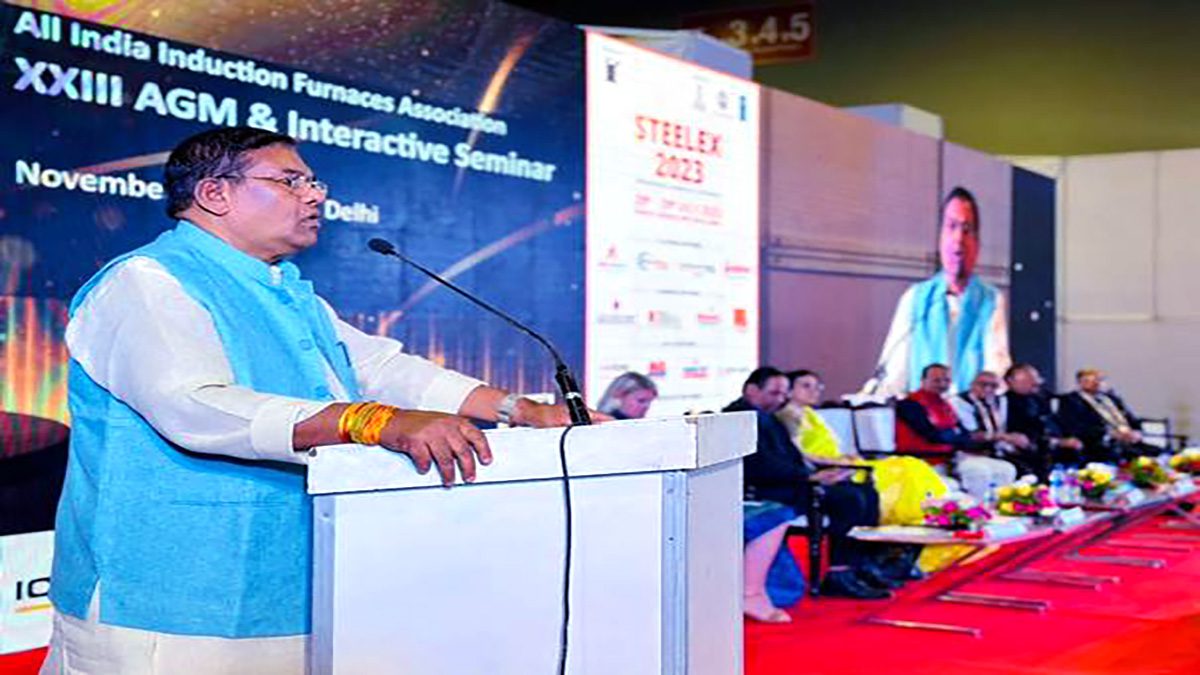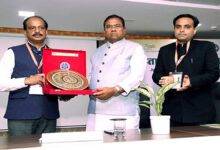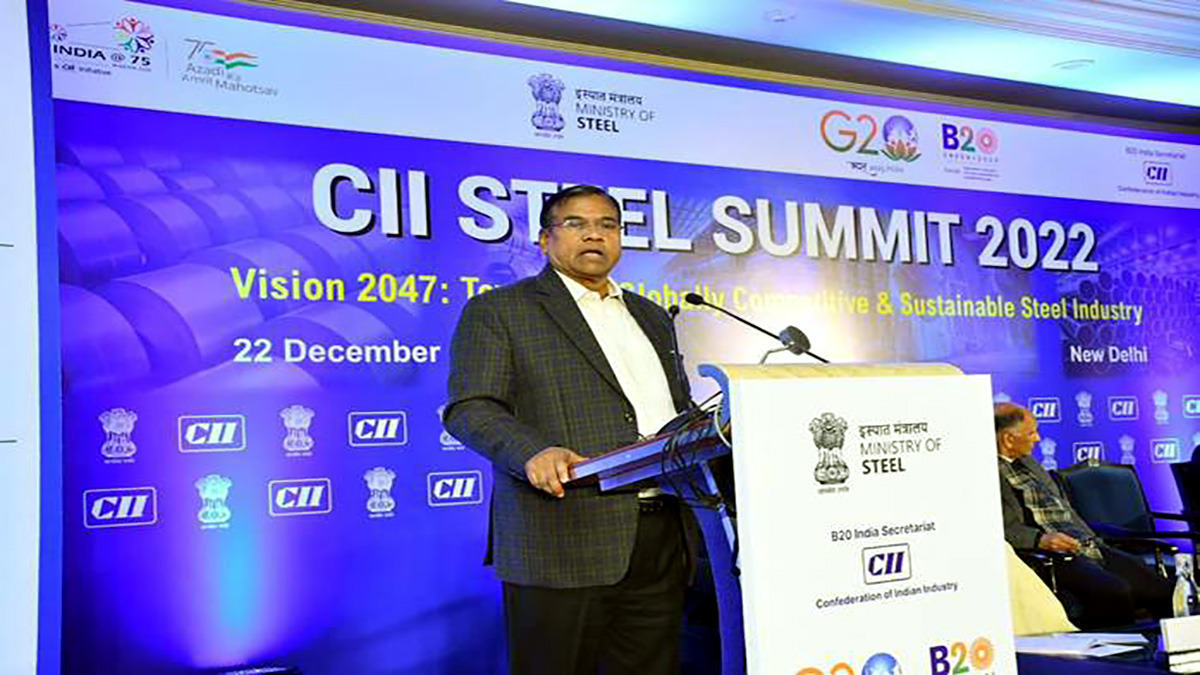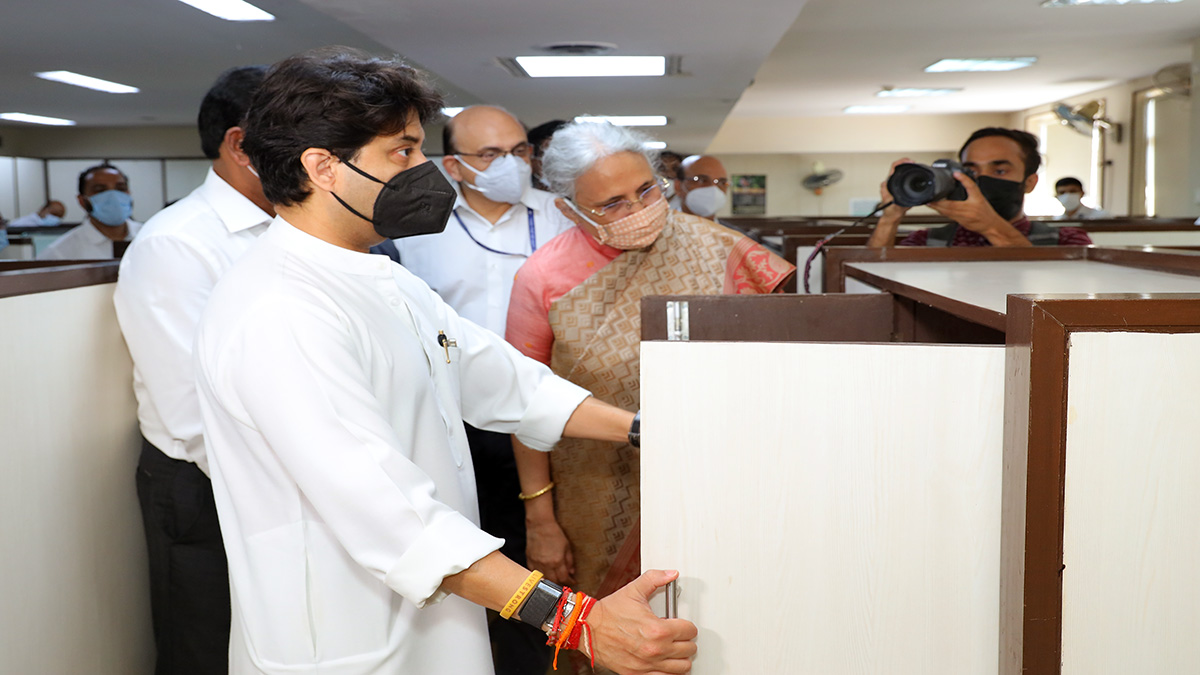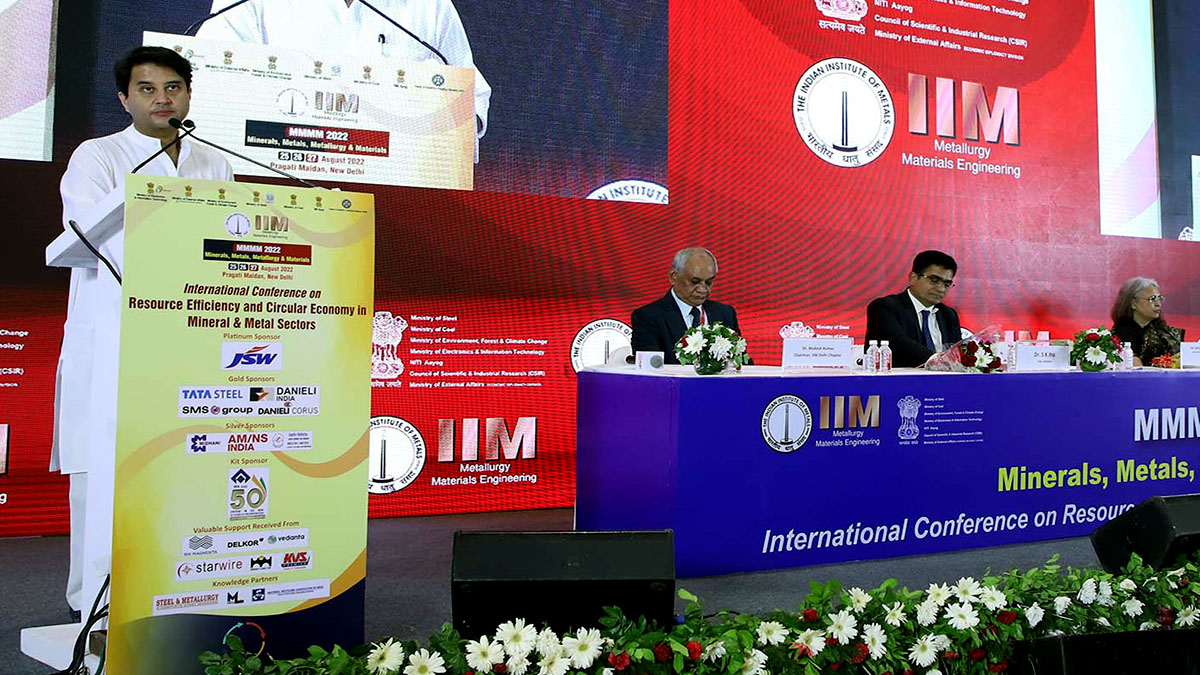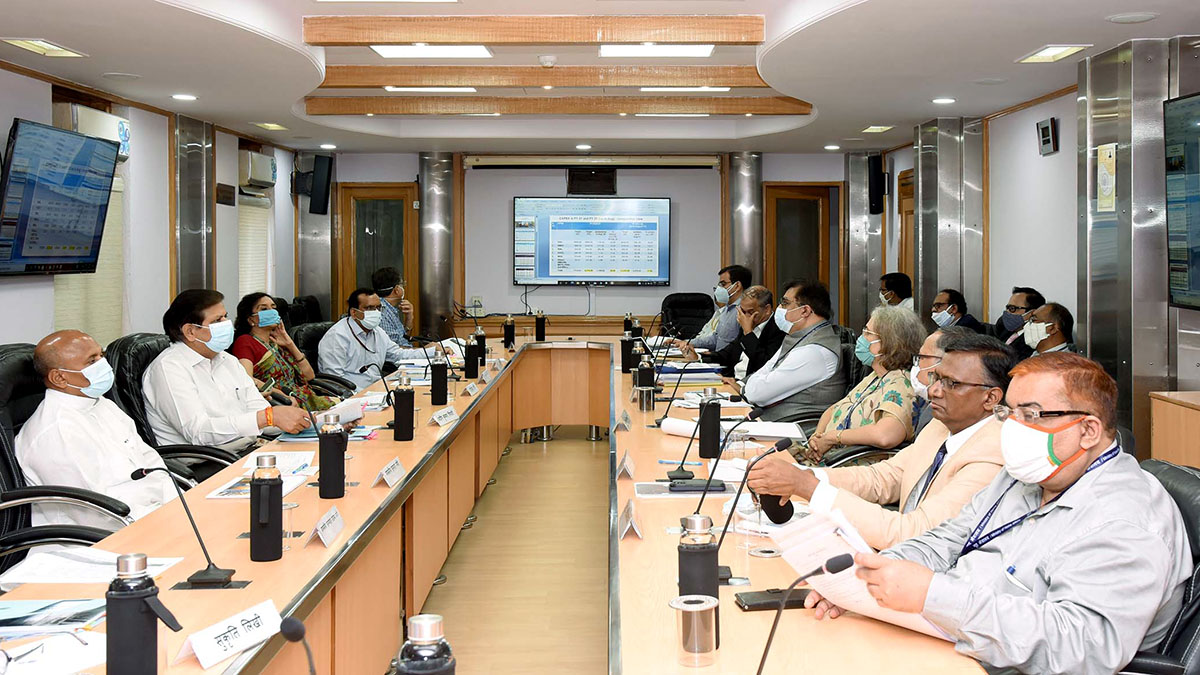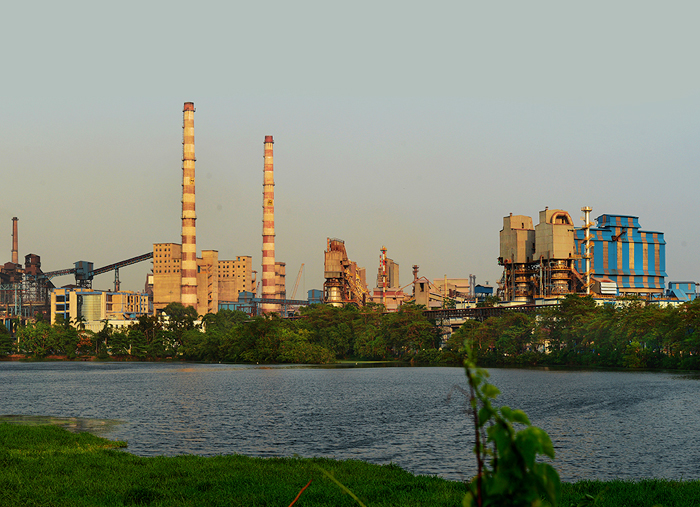The importance of enhancing per capita steel consumption in India to reach global levels was highlighted by Union Minister of State for Steel and Rural Development, Faggan Singh Kulaste, during his keynote address at STEELEX 2023 & the 35th National Conference of All India Induction Furnace Association (AIIFA). The event, held at Pragati Maidan, New Delhi, focused on “Decarbonizing the steel sector in India: An era of moving towards a greener path through a circular economy.”
Minister Kulaste urged the stakeholders to work towards increasing per capita steel consumption in India to the global average of 222 kg per capita, a significant leap from the current level of 86.7 kg per capita. The move is expected to have a positive multiplier effect on steel capacity creation, investments, employment generation, and the introduction of advanced technology to aid in decarbonization and reduction of carbon emissions.
Addressing the gathering, the Minister acknowledged the vital role played by the secondary steel sector and AIIFA in the country’s construction industry, particularly in rural areas. He emphasized the need to build human capability within the secondary steel sector through well-planned institutional mechanisms, drawing inspiration from the Integrated Steel Sector’s successful approach.
According to the Minister, a skilled workforce is indispensable for meeting the demands of capacity creation, increased production, efficient resource utilization, and fostering innovation within the industry. He called for a concerted effort to achieve the global benchmark of 8% carbon emissions in the steel sector, a substantial decrease from the current 11% level in the domestic steel industry. This can be achieved through the adoption of available carbon capturing technology, renewable energy sources, or retrofitting older plants with greener solutions.
Nagendra Nath Sinha, Secretary, Ministry of Steel, also spoke at the conference, emphasizing the need to focus on capacity utilization in the Induction Furnace segment, which currently stands at around 70%. He stressed the importance of embracing new technologies to address significant carbon contributions and energy-inefficient processes in the Secondary Steel Sector.
Secretary Sinha disclosed that 13 task forces were formed in March 2023, dedicated to decarbonizing the steel sector. Notably, task forces on material efficiency, energy efficiency, skill development, and finance aim to specifically benefit Induction Furnace mills. The Ministry of Steel is keen on investing in research and development for new products and processes through the “R&D in the Steel Sector” scheme, presenting growth and innovation opportunities for the steel industry in India.
The Minister and the Secretary advised AIIFA to submit the conference’s outcomes and recommendations to the Ministry of Steel for consideration. They highlighted the urgency of manpower skilling in the secondary sector and commended the establishment of two specialized institutions, NISST and BPNSI, dedicated to nurturing skilled manpower for the industry.
Safety within the steel industry remains a top priority, and the officials stressed the importance of a continued focused approach to creating a safe working environment for employees.


